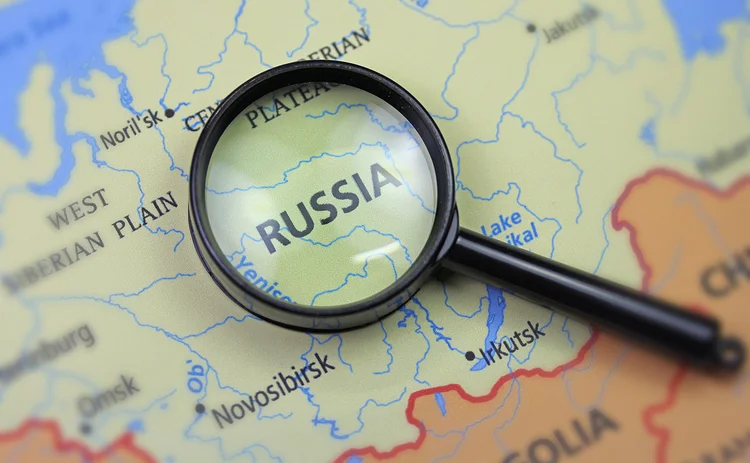
Europe: Sogaz stands out in the Russian market

The Russian insurance market showed modest growth according to last year's results and the market leader Sogaz stands out in particular among other insurance companies
The Central Bank of Russia reported in 2015 that the total amount of premiums collected by Russian insurers exceeded 1trn rubles, which is 3.3% more than in 2014, while the amount paid out was 509.2bn rubles - up 7.1%.
The positive dynamics of the insurance market in general and of compulsory insurance, in particular, was largely determined by the growth of revenues from selling of compulsory motor third-party liability insurance policies (+44.2%), caused by the increase of tariffs.
At the same time the amount of premiums collected under voluntary insurance contracts has decreased by 4.2%. This occurred due to a slump in demand for coverage resulting from a rise in the cost of insurance policies and a slowdown in general economic activity.
Life insurance and voluntary health insurance were exceptions - the former segment grew by 19.1%, and the latter - by 3.6%. According to the Central Bank, the largest reduction in premiums occurred in motor own damage insurance (a 14.6% decrease) and legal entities' miscellaneous assets insurance (- 10,9%).
Despite market growth, the Central Bank of Russia has marked a decrease in the penetration of insurance services. The number of concluded contracts has reduced by 10.3% during the year. The insurance premium volume in relation to the gross domestic product made up 1.3%.
Sogaz grows and develops
At the beginning of March it was reported that joint-stock company Sogaz became the largest Russian insurance company by size of the authorised capital stock, which was increased from 15.1bn to 25bn rubles and its net income grew by 57% as compared to 2014.
Second place is now taken by Ingosstrakh - its authorised capital stock equals 17.5bn rubles, and third place belongs to RESO-Garantia, - with 10.85 bn rubles.
In 2016 Sogaz continued its expansion - in the middle of February the company became the owner of 100% shares of Zhaso, a large Russian insurer and the major player in the rail transportation insurance market.
In December last year Sogaz bought 24.99% of Zhaso's shares from the company United Credit Systems, and has now completed the purchase of the remaining 75.01% of shares.
In February, the Federal Anti-Monopoly Service endorsed the all-stock deal, however, it gave Sogaz an order to reduce its share in some regions.
According to FAS, the deal may lead to restrictive business practice in 41 regional markets. Therefore, for example, in the Moscow rail transportation insurance market the Zhaso and Sogaz combined market share should not exceed 34.67% - presently the market share of this size belongs to Zhaso alone, and Sogaz has an additional 16.61%.
According to Kirill Brovkovich, Zhaso's general manager, the company's integration into the Sogaz group will take about two years. The company also intends to expand its activities in the international market. At the beginning of the year, Sogaz became the only Russian insurance company which obtained foreign reinsurer registration in China.
After registration the company gained access to conducting transborder operations on obligatory and facultative reinsurance with contract partners from China.
According to Dmitriy Talaev, a member of the Sogaz board of directors, the company plans to expand co-operation in the near future with Chinese companies such as Anbang Insurance Group, Ping An Property & Casualty Insurance Company and Taiping Reinsurance, China Re and the People's Insurance Company of China.
Energy sector risks insurance, construction and mounting risks insurance, property insurance and sea and air risks insurance are of special interest for the company and on 1 May, Sogaz was given a certificate of representative office registration in China by the Beijing Municipal Administration of Industry and Commerce.
For the first time, the Chinese rating agency, Dagong has given the company a long-term credit rating of ВВВ+ in Russian and foreign currencies. A forecast for the credit rating is 'stable'.
On top of that, Sogaz has shown strong domestic market results. In 2015 the group's net income under International Financial Reporting Standards exceeded 21.7 bn rubles - 57% higher than in 2014.
Low combined ratio and increase in revenue from investment activities became the main factors of the company's profit growth.
Sales growth also influenced the size of the Sogaz investment portfolio, which by the end of 2015 made up 130.5bn rubles - including funds on settlement accounts - this is 17% more than at the end of 2014.
The insurer's total investment income amounts to 13.6bn rubles (+36%). Following the results of 2015, Sogaz assets, excluding reinsurers' shares, exceeded 178bn rubles (+17%). The company's capital grew by 20% and is made up 66.7bn rubles, compared to 55.4bn rubles at the end of 2014.
Vladimir Putin comments on motor insurance problems
In the middle of March and speaking at the State Council presidium meeting on road traffic safety, Russian president Vladimir Putin referred to the necessity of implementing a set of measures that would allow the recording of minor road traffic accidents without the involvement of police officers.
This relates to accidents resulting only in property damage. Putin said: "At present not all road users are ready for such self-dependent actions, but the future belongs to them - and these principles will soon become as common for us as car insurance."
Further, the president approached the representatives of the Central Bank and the insurance companies to find effective measures of preventing the spread of false insurance policies throughout the country. "Recently this problem has become endemic and now it causes damage not only to the citizens, but also to the insurance industry's reputation," Putin said.
The president also noted that questions concerning insurance should be included into the drivers' education programme so that "the culture of insurance becomes a part of their knowledge and cultivates personal responsibility."
In recent years the selling of false compulsory motor third-party liability insurance policies has worsened. The Russian Association of Motor Insurers estimates that fake CMTPL insurance policies make up 2% to 5% of the market, while research holding company Romir, also states their numbers may reach 11% of the total amount of all polices.
Only users who have a paid subscription or are part of a corporate subscription are able to print or copy content.
To access these options, along with all other subscription benefits, please contact info@postonline.co.uk or view our subscription options here: http://subscriptions.postonline.co.uk/subscribe
You are currently unable to print this content. Please contact info@postonline.co.uk to find out more.
You are currently unable to copy this content. Please contact info@postonline.co.uk to find out more.
Copyright Infopro Digital Limited. All rights reserved.
You may share this content using our article tools. Printing this content is for the sole use of the Authorised User (named subscriber), as outlined in our terms and conditions - https://www.infopro-insight.com/terms-conditions/insight-subscriptions/
If you would like to purchase additional rights please email info@postonline.co.uk
Copyright Infopro Digital Limited. All rights reserved.
You may share this content using our article tools. Copying this content is for the sole use of the Authorised User (named subscriber), as outlined in our terms and conditions - https://www.infopro-insight.com/terms-conditions/insight-subscriptions/
If you would like to purchase additional rights please email info@postonline.co.uk
